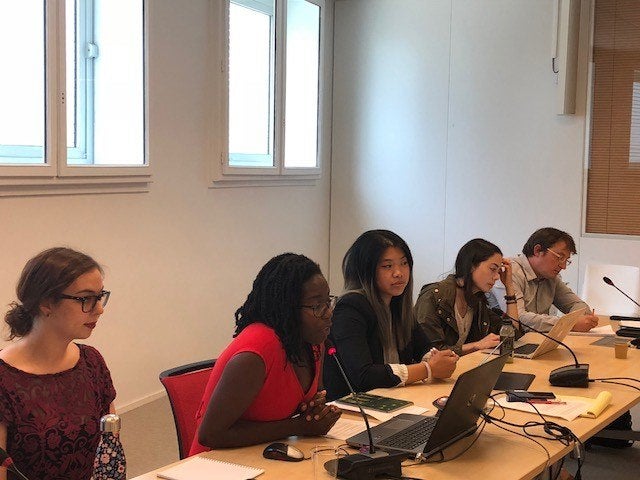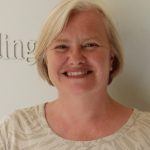
The FXB Field Education program* is a Harvard university-wide program and provides an opportunity for Harvard students to expand their knowledge and field experience in community development, health, and human rights for impoverished and marginalized populations, and to contribute to agency’s program capacity building, advocacy, and public policy. The field experience consists of qualitative and participatory action research.
This summer students from Harvard T.H. Chan School of Public Health, Harvard Kennedy School, Harvard Divinity School, and Harvard College conducted research that focused on residential paths for asylum seekers, refugees and migrants. Harvard students were hosted in France for two months with government and public agencies such as the metropolis of Grenoble, Nantes, and Toulouse, a state administration Déléguation interministérielle à l’hébergement et à l’accès au logement (Dihal) and an accommodation and housing operator (Adoma ).
At the end of their research internships students presented their preliminary results at a seminar on July 12 in Paris hosted by government agencies DIHAL and PUCA (Plan Urbanisme Construction et Architecture). The goal of the seminar was to provide the opportunity for students to share their preliminary work and facilitate dialogue between government officials and practitioners.
A first round table focused on the different inclusion strategies developed by institutional actors and local authorities as perceived by student-researchers. Students presented the populations that were studied within the framework of the research works, to understand their points of convergence (language barrier, precariousness, difficulties of access to social rights) and divergence (migration routes, status in France). Students presented various strategies implemented in the different regions to meet the needs of these audiences. As a counterpoint, a student presented the observations made under the same protocol on the reception and inclusion strategies developed in Sweden in the city of Malmö.
This second round table focused on the work carried out with ADOMA, more specifically on the participants and their backgrounds. Particular attention was given to the first stages of the pathway, namely: the first reception, waiting for obtaining status, and accommodation in a collective structure. Several questions were asked: How to think about accompanying people in “in-between” and waiting situations? How to co-build support with participants?
The last round table aimed to question the tools put in place by various actors intervening in the cities studied (Nantes, Grenoble and Toulouse) to allow access to housing, employment, health and education. More specifically, the focus on their contribution to the qualification and capacity of both the populations and professionals were examined, so as to improve the effectiveness of actions and the sustainability of their results. In contrast, a student presented international research on a community development program in several other countries in Africa, Asia and Latin America (The FXBVillage program).
Co ntributed by Myriam Zuber, Senior Program Manager, Harvard FXB Center for Health & Human Rights
ntributed by Myriam Zuber, Senior Program Manager, Harvard FXB Center for Health & Human Rights
*Note: The FXB Internship Program is no longer active as of September 2018.
You must be logged in to post a comment.